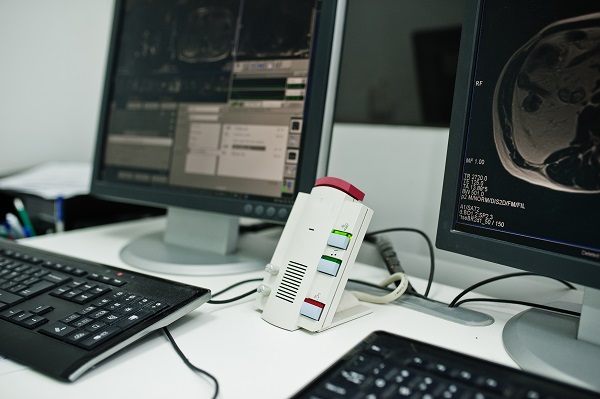Tele-ICU’s role in regional ICU management and healthcare systems
The concept and potential of Tele-ICU and its implementation have attracted much attention, particularly since the COVID-19 pandemic outbreak. Let’s look at Tele-ICU and how telehealth is changing critical care delivery.
Back to basics
To understand the broader impact of Tele-ICU adoption in ICU management and healthcare systems, let’s go back to the thinking behind Tele-ICU. Tele-ICU enables off-site ICU interventionists and clinicians to interact with bedside hospital staff to discuss and enhance patient care. A centralized care team can manage many geographically scattered ICU locations to swap health information in real-time electronically. A tele-ICU does not replace bedside teams but helps in the face of insufficient clinical resources.
Tele-ICU programs focus on and extend clinical resources in remote care centers to the bedside via technology, autonomous of the center or hospital’s location. For example, using a real-time data stream and A/V conferencing from numerous interfaces, a specialist working at a care center, say in NYC, can quickly care for a patient in Seattle, day or night. This connectivity allows a busy intensivist to intervene and constantly provide care according to best practices rapidly.
Evaluating Tele-ICU
Those who have adopted Tele-ICU discover that the service plays a critical role in effective regional ICU management and impacts the entire healthcare system. For example, a centralized off-site patient monitoring center can consolidate and standardize care, reduce transfers while maximizing bed utilization, and support onsite staff. As a result, Tele-ICU reduces costs while enhancing revenues, patient flow, and capacity management across the system.
An example is the Presence Health healthcare system in Chicago. According to its System Director, Tele-ICU Operations, Kathy Johnson, RN, MHA, “Tele-ICU has been a vehicle that, through continuous communication, has enhanced and improved clinical outcomes. This program has transformed critical care delivery across our health system.”
Financial concern has been an issue preventing Tele-ICU uptake. However, several studies have demonstrated the cost and clinical benefits of Tele-ICU. The very concept of Tele-ICU was born out of the need to boost resources and prepare for increased ICU usage – especially given the increasing aging population, among other factors. Leveraging Tele-ICU enables hospitals to optimize their current critical care resources rather than emptying their coffers by adding more.
A 2017 study, published in the CHEST journal (ICU Telemedicine Program Financial Outcomes), offers the most comprehensive look at the effectiveness of the Tele-ICU model to date. The study examined over 51,000 patients across seven adult ICUs. While Tele-ICUs have decreased mortality rates and LOS, this study was the first to deep dive into the financial outcomes.
The results showed that:
An ICU managed by Tele-ICU improved case volumes by 21% over conventional models.
A central Tele-ICU system improved contribution margins by 376% ($37.7 million compared to $7.9 million) because of enhanced case volume, shorter LOS, and higher case profits relative to direct costs.
Used with a logistics center, Tele-ICU improved case volume by 38% over traditional models.
A Tele-ICU with an added logistical center and quality care control improved contribution margins by 665% ($60.6 million vs. $7.9 million).
In less than three months, the supplemental care supply model recovered the initial Tele-ICU implementation capital costs.
Craig M. Lilly, MD, UMass Memorial Medical Center, who specializes in Critical Care Medicine and Pulmonary Disease, sums it up as follows: “The ability of tele-ICU programs to increase case volume and access to high-quality critical care while improving margins suggests a strong financial argument for wider adoption of ICU telemedicine.”

